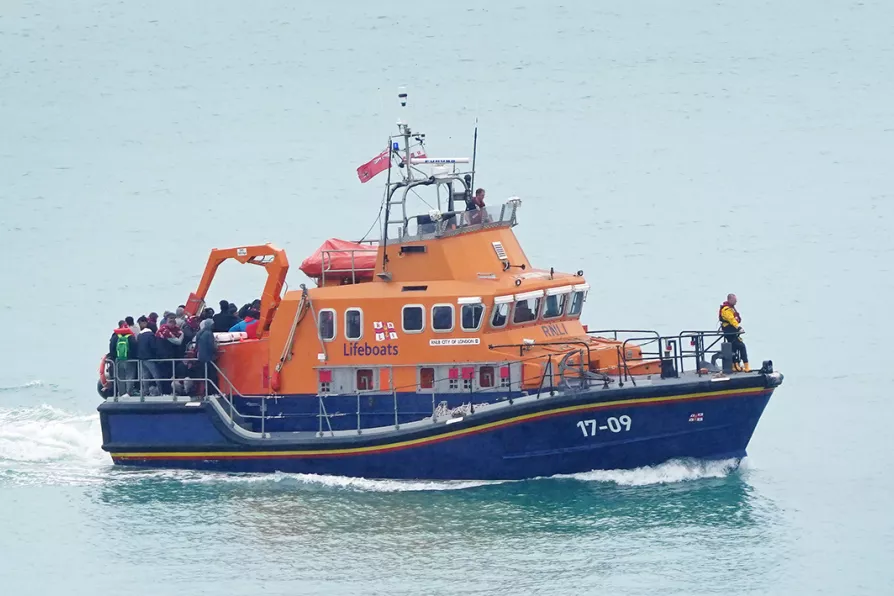
 A group of people thought to be migrants are brought in to Dover, Kent, onboard the RNLI Dover Lifeboat following a small boat incident in the Channel, July 9, 2024
A group of people thought to be migrants are brought in to Dover, Kent, onboard the RNLI Dover Lifeboat following a small boat incident in the Channel, July 9, 2024
FOUR people died needlessly crossing the English Channel. It is halfway through the year and over 13,000 people who risked crossing this narrow stretch of water we call our own made it safely. But no-one really knows how many died.
The last government, and this one, mask the shared inhumanity of their approach to this with a self-serving narrative about the criminal gangs who profit from their monopoly in this inhuman trade.
But as any Establishment neoliberal economist will tell us, markets respond to demand. And as every Friday night cokehead knows, illegal market demand will be met by criminals.
So when the new Home Secretary says these four deaths are “truly awful” these words are devoid of human meaning if nothing in her power is done to put an end to this deadly trade and set up safe routes for refugees, asylum-seekers and migrants.
Now the neocolonial arrogance about sending people to Rwanda has ended, Britain needs to put the national discussion about immigration on a rational footing.
If this is not done the Farageiste farrago of nonsensical ideas about the normal modern-day flow of people to and fro will feed a reactionary underbelly of myths, and fuel a fascist revival.
These most malign participants in the lopsided national conversation about immigration make much of the flow of small boats bringing desperate people to Britain.
Most people “legally” arriving in Britain in the 12 months up to June last year were non-EU nationals (968,000), followed by EU citizens (129,000) and British (84,000).
While last year around just 29,000 people arrived in small boats, down from 46,000 in 2022.
Do the maths. Rather than putting these people up in hotels and forcing them to spend their days in idleness, why not help them find their way to make a positive contribution to our economy and society?
These arrivals are but a small proportion of the people who come to live and work in Britain the vast majority of whom are licensed by direct invitation by His Majesty’s government partnering with the monopoly corporations and vast archipelago of smaller firms who desire, and need, a constant, if variable, flow of migrant workers.
Health and care are the main occupations drawing non-EU migration. There now is a higher demand for doctors, nurses and other groups of workers who were already eligible for visas under the old system.
Of course, some of these people are highly skilled and well-educated migrants, in some cases poached in a typically post-colonial parasitic relationship from countries whose economies need their skills more than does ours. But, as everyone can see, many migrant workers end up in low-paid jobs and some are super-exploited.
This is the pull factor driving immigration. Other push factors are equally a function of British capitalism in that decades of imperialist war in the Middle East continue to drive flows of migrants. And to these are added people driven from countries where climate change, for which their nations have made little contribution, means they are forced to move.
Rather than pandering to reactionary and racist mystification, our government should tell the plain truth about why people come to live and work here.
No clear understanding about the peculiarities of migration to and from these islands is possible without facing historical truths about the role of colonialism and slavery in our industrial revolution, our history of colonial and contemporary wars and the vital role of immigrants in rebuilding our war-shattered economy.
At the same time, the racism that finds fertile ground in myths about migration cannot be dissipated without a challenge, which in present circumstances must come from the left and the labour movement, against the dangerous growth of Reform UK.














